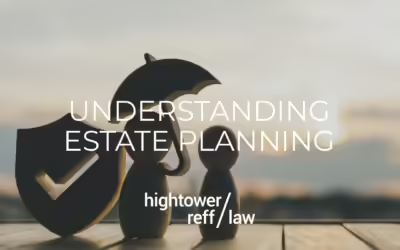What Is Estate Planning?
Estate planning is a way to make your wishes known when you die or to choose the person who will handle your affairs in the event of either your inability to make decisions or after you have died. A basic estate plan includes a will, power of attorney for health care, and power of attorney for finance.
When it comes to estate planning, take Benjamin Franklin’s advice: “If you fail to plan, you are planning to fail.” We know you don’t want to think about dying. But when you don’t take estate planning seriously, your family will be faced with tough choices that may not be what you actually want. A well-established estate plan will help avoid chaos and extra costs when it’s done in a timely fashion, not under pressure. Taking the necessary steps to establish a basic estate plan when you have the time to consider all your options is beneficial for several reasons.
Is It Worth the Average Cost of Estate Planning?
Establishing a good estate plan now can save extra costs later for you and your family. For example, if you have a properly executed power of attorney, your family can avoid the difficult process of establishing a guardianship or conservatorship over you in court. A power of attorney document is less expensive to draft and execute than filing for a guardianship in court. Plus, it’s something that you can put in place before a crisis happens.
When Is Estate Planning Needed?
One of the most important steps in developing an estate plan is taking the necessary time to consider your options. By allowing ample time to think about the significant decisions that estate planning requires, you are giving yourself peace of mind in knowing you have a solid plan that you and your family can fall back on. Often times, we meet with families after someone has been diagnosed with a terminal illness or has already lost the ability to make decisions. This can limit the options available for estate planning. In those cases, the decisions are often forced and rushed due to emergency circumstances. Do yourself a favor and give yourself the gift of time — time to think and time to choose what is best for you.
How To Prepare for Estate Planning Meetings
Having a 30,000-foot view of your current estate assets, family dynamics, insurance needs and potential tax implications allows an estate planning attorney to develop the best plan for you. The more advance planning you undertake, the more likely you are to be able to execute a plan that encompasses all your needs.
What Is the Purpose of Making an Estate Plan?
Estate planning is not only for you, the person signing on the dotted line. More often than not, the unintended beneficiary of a comprehensive estate plan is your family who will be caring for you when you are sick and who will distribute your assets after you are gone. By executing a basic estate plan, you are allowing your family to place their time and energy with you if you become sick.
From choosing a guardian for yourself and your minor children to the division of your assets, having a proper plan ensures you have a voice in all stages of the process that your family can lean on for guidance. Estate planning is more than just assets. And it is more than just passing wealth. Estate planning is about making sure you and your family are taken care of, no matter your stage in life. Give yourself the time to make a plan for you.
This article should not be construed as legal advice. Situations are different and it’s impossible to provide legal advice for every situation without knowing the individual facts.




